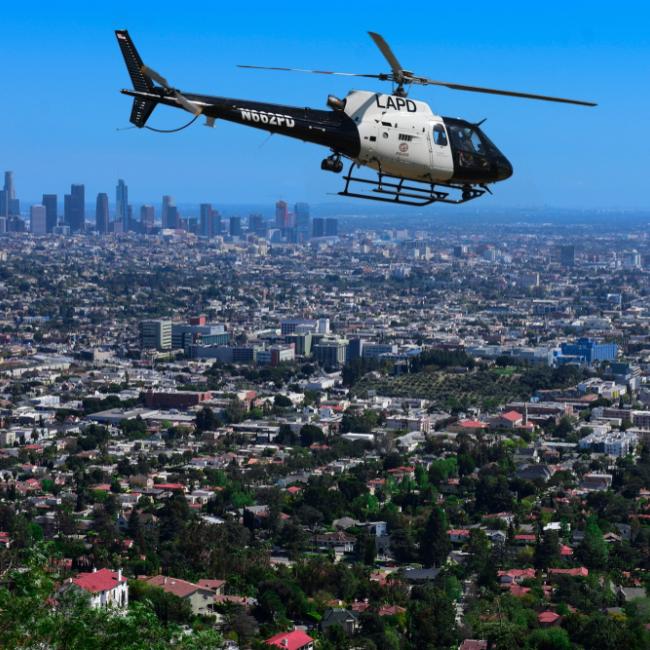Project Summary
The project team is studying how police patrolling by helicopter impacts communities, which predominantly affects Latine and Black neighborhoods. The team’s aim is for changes in helicopter noise to have meaningful impacts for sleep quality and health.
Research Questions/Aims
- Are the patterns of police helicopter surveillance in LA racialized and classed?
- Have sleep quality and secondary health and productivity outcomes been impacted by law enforcement helicopter patrolling activities?
- What are the sleep, productivity, and health benefits of reduced or modified flight patterns?
Actionability
- Inform law enforcement patrol decision-makers and policymakers on patrol practices about scenarios that will most positively advance health and racial equity; and
- Evaluate and contribute to policy planning around the use of rotorcraft to determine if they are a driver of noise-induced racial inequities.
Racial Equity Implications
The global practice of law enforcement patrol by helicopter began in Los Angeles in 1965, when an ex-military aircraft sales agent convinced the LA County Sheriff’s Department that helicopters used in the Korean and Vietnam Wars would be useful for suppressing the Watts Rebellion, a Black uprising against police brutality and larger structural racism. In the last year, the project team has heard from community members that frequent police helicopter flyovers make “it feel like a warzone” and, further, that the long-term presence of police helicopters poses “a direct threat to the health and wellbeing of people of color and the working class as a whole.” The most common concern is disturbed sleep. The mental and physical health impacts of decades of racialized sleep disturbance is an unstudied aspect of structural racism. Preliminary results have found statistically significant increases in helicopter patrol activity and reduced altitudes in Black and Latine neighborhoods. The research is driven by community insights and utilizes novel scientific approaches to understanding the present and historical health costs of helicopter police patrols and detailing pathways to promote health and racial equity in the future.
Outcomes
Health: Sleep quality and sleep fragmentation, cognitive health, anxiety, stress Other: Productivity, air and noise pollution from the helicopters
Methodology
The team is using seven years of flight trajectory data for every law enforcement helicopter flight in Los Angeles County, aeroacoustic noise modeling, and dose-response relationships of aircraft noise exposure’s influence on sleep, health, and cognition from systematic reviews. With the collaboration of the project team’s community partners, they will qualitatively nuance their quantitative findings with oral histories from the most impacted communities.

University of California, Los Angeles